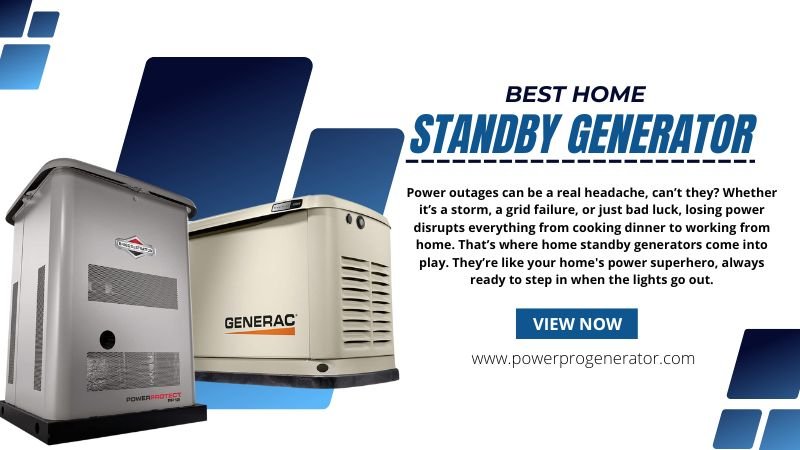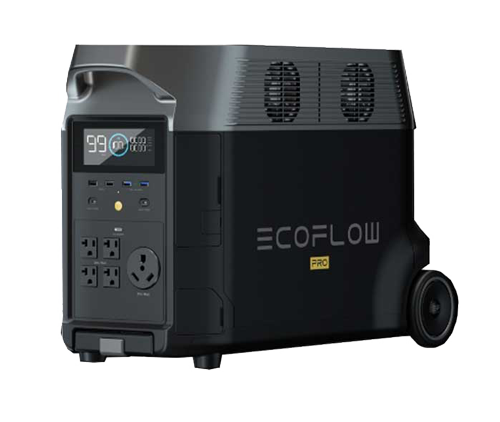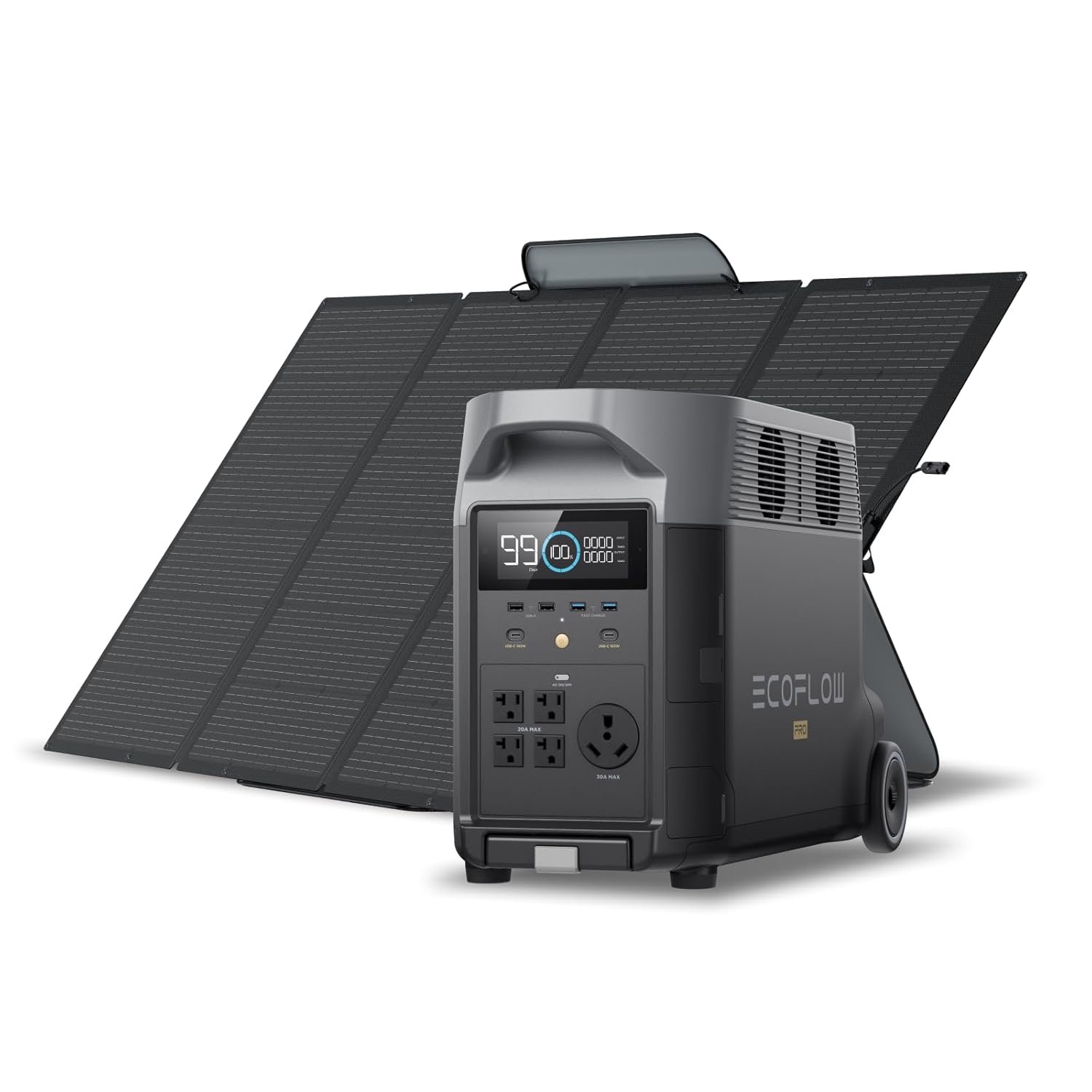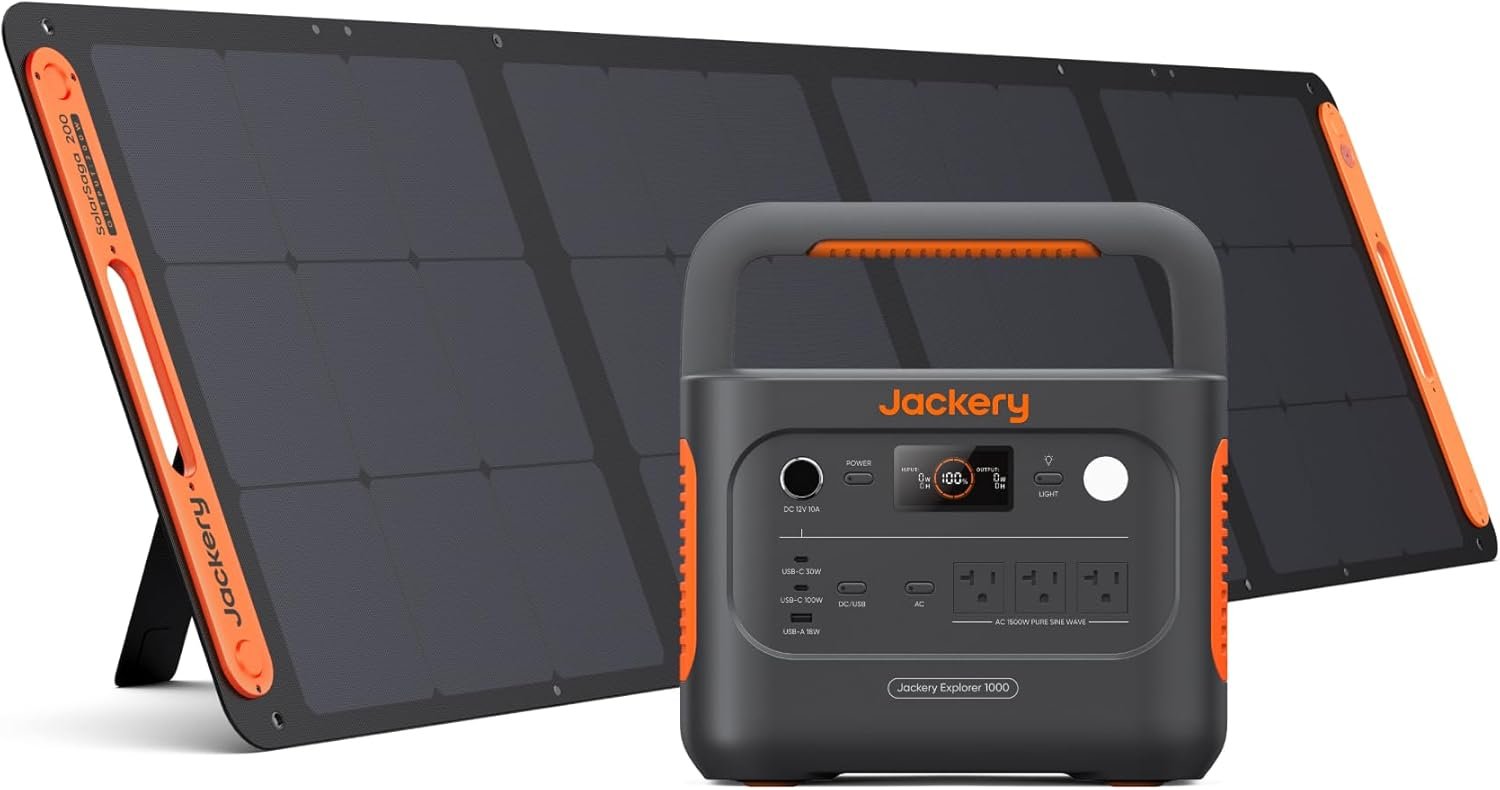|
10 People Are Viewing This Product Right Now |
Choosing the Best Home Standby Generator for Your Needs
Best Home Standby Generator – Power outages can be a real headache, can’t they? Whether it’s a storm, a grid failure, or just bad luck, losing power disrupts everything from cooking dinner to working from home. That’s where home standby generators come into play. They’re like your home’s power superhero, always ready to step in when the lights go out.
In this guide, we’ll explore everything you need to know about home standby generators, including how to choose the best one and why they’re a must-have for modern homes.

What Is a Home Standby Generator?
These generators are powered by natural gas or propane, ensuring a steady supply of energy without the need for frequent refueling. As they are integrated into your home’s electrical system, they can power everything from essential appliances like refrigerators and heating systems to entire home circuits, depending on the model and capacity.
Beyond the immediate benefits of uninterrupted power, home standby generators also enhance safety and security. With reliable lighting and operational security systems, homeowners can feel at ease during unexpected outages. Moreover, many modern generators come equipped with smart technology, allowing you to monitor and manage your system remotely via smartphone apps.
- Definition and Function
A home standby generator is a permanently installed device that automatically provides power to your home during an outage. Unlike portable generators, these units are hardwired to your electrical system and powered by fuel sources like natural gas or propane. - Key Differences Between Standby and Portable Generators
While portable generators are more affordable and versatile, standby generators are a long-term solution. They offer higher capacity, automatic operation, and integration with your home’s electrical system.
In this guide, we will delve into the different types of standby generators, their features, and essential considerations to ensure you select the perfect model that meets your energy needs. Whether you live in a storm-prone region or simply want peace of mind during unexpected outages, understanding the ins and outs of home standby generators is the first step toward empowering your home.

Key Features to Look for in a Standby Generator
When it comes to choosing the best home standby generator, understanding the key features that set one model apart from another is crucial. A generator is an investment in safety, convenience, and peace of mind, especially during unpredictable weather events or power outages. Here are some essential features to consider:
- Power Output: The generator’s wattage is one of the most important specifications to look at. Make sure to assess your household’s power needs, including essential appliances like refrigerators, HVAC systems, and medical devices. Generators typically range from 5,000 to 20,000 watts, so choose one that can handle your peak load while providing a buffer for unexpected demands.
- Fuel Type: Standby generators commonly run on natural gas, propane, or diesel. Natural gas is often the most convenient option since it connects directly to your home’s gas line, ensuring a continuous supply during outages. Propane can be stored on-site but requires you to maintain fuel levels. Diesel generators are typically more powerful but may require more maintenance.
- Automatic Transfer Switch: An automatic transfer switch (ATS) is a must-have feature for seamless operation. This device automatically detects power outages and switches the power source from the grid to the generator within seconds. This feature not only enhances convenience but also ensures that you are never left in the dark.
- Noise Level: Noise can be a consideration, especially if you live in a suburban area. Look for generators that are designed with sound-dampening technology to minimize noise output. Many modern models operate quietly, allowing you to enjoy your home environment without the constant drone of a running generator.
- Maintenance Alerts: Some advanced standby generators come equipped with maintenance alerts and notifications. These systems will remind you of regular maintenance checks, such as oil changes and filter replacements, ensuring that your generator remains in top condition and ready to perform when needed.
- Warranty and Support: A robust warranty is vital when investing in a standby generator. Look for models that offer comprehensive coverage and excellent customer service. A solid warranty not only provides peace of mind but also reflects the manufacturer’s confidence in their product.
By focusing on these key features, you can make an informed decision and choose a home standby generator that meets your needs, ensuring your home remains powered and comfortable during any outage. Remember, the right generator is more than just a backup source of power; it’s an essential component of your home’s safety and resilience.
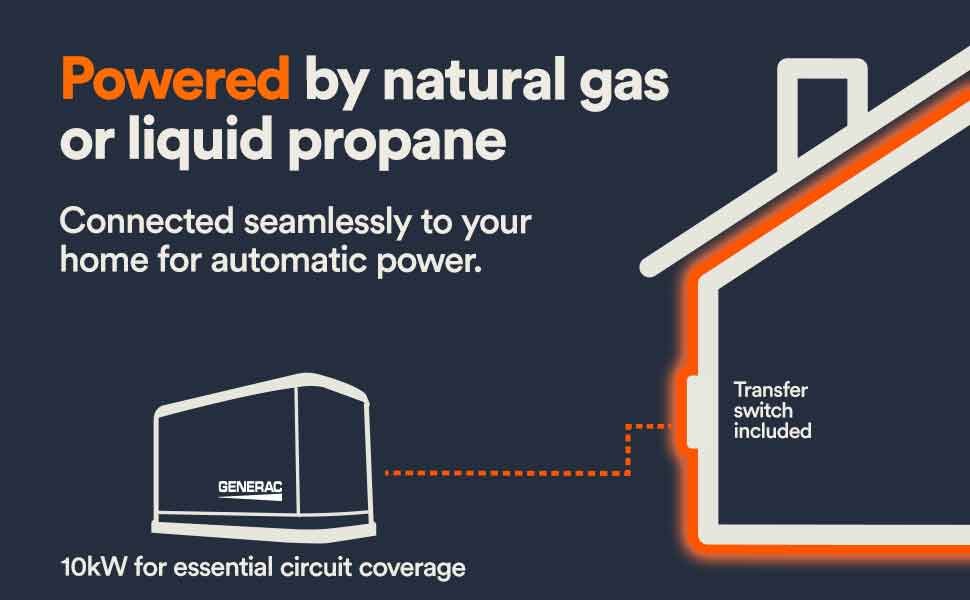
Benefits of Owning a Home Standby Generator
- Uninterrupted Power Supply
Imagine never worrying about spoiled food, freezing nights, or disconnected work meetings. With a standby generator, your power kicks in automatically when the grid goes down. - Increased Home Value
Having a home standby generator installed can boost your property value. It’s an attractive feature for potential buyers who prioritize reliability and convenience. - Convenience During Emergencies
There’s no scrambling to start a generator or dealing with extension cords. Standby generators are always on standby, ready to go at a moment’s notice.


Types of Fuel: Natural Gas vs. Propane vs. Diesel
When it comes to powering your home standby generator, the type of fuel you choose can significantly impact performance, availability, and overall costs. The three primary fuel options are natural gas, propane, and diesel, each with its own set of advantages and considerations.
- Natural Gas is often the most convenient choice for homeowners connected to a municipal gas line. Generators that run on natural gas are typically easier to start and maintain since they are fueled directly from an existing supply. This means you won’t have to worry about running out of fuel during an outage. Additionally, natural gas is generally more affordable than propane or diesel, making it a cost-effective option. However, availability can be an issue during widespread outages or natural disasters, where pipeline integrity may be compromised.
- Propane, on the other hand, offers a versatile alternative. It’s stored in tanks, which means you can keep an ample supply on hand, ensuring that you’re prepared for extended outages. Propane generators tend to have a longer shelf life when compared to gasoline, making them an excellent choice for emergency preparedness. They are also relatively clean-burning, producing fewer emissions than diesel. However, the cost of propane can fluctuate based on market conditions, and tank refills may require additional planning.
- Finally, there’s Diesel. Known for its reliability and efficiency, diesel generators are favored in commercial and industrial applications but can also serve well in a residential context, especially for larger homes or properties with high power demands. Diesel engines are robust and can operate for long periods without needing refueling, making them a solid choice for extended outages. However, diesel fuel can be more expensive, and the generators themselves are often heavier and noisier than their natural gas or propane counterparts. Maintenance is crucial, as diesel engines require regular servicing to ensure longevity.
In choosing the right fuel type for your generator, consider not only your power needs but also the availability of fuel sources in your area, your budget, and how often you anticipate needing the generator. Each fuel type has its unique benefits, so matching those with your specific requirements will help ensure you select the best home standby generator for your needs.
How to Choose the Best Home Standby Generator
- Assessing Your Power Needs
Before shopping, figure out how much power your home consumes. Do you want to power the entire house or just critical appliances like refrigerators and HVAC systems? - Fuel Type Considerations
Most standby generators run on natural gas, propane, or diesel. Natural gas is convenient if you’re already connected to a supply line, while propane offers portability and efficiency. - Noise Levels and Location
Nobody wants a generator that sounds like a jet engine. Look for models with low decibel ratings and ensure proper placement away from living areas. - Maintenance and Durability
Invest in a generator built to last. Look for features like weather-resistant enclosures and easy access for routine maintenance.

Automatic vs. Manual Transfer Switches: Which Is Right for You?
When it comes to integrating a home standby generator into your power solution, one of the most crucial decisions you’ll face is choosing between an automatic or manual transfer switch. Each option has its own set of advantages and considerations, and understanding these can significantly impact your overall experience and safety during a power outage.
- Automatic Transfer Switches (ATS) are widely regarded for their convenience and seamless operation. As soon as a power outage occurs, an ATS will automatically detect the loss of electricity and immediately switch your home’s power source from the grid to the generator. This means you won’t have to lift a finger; your home will remain powered without any interruption. This is especially beneficial during extreme weather events or emergencies when time is of the essence. With an ATS, you can enjoy peace of mind knowing that your essential appliances, lights, and heating or cooling systems will remain operational without any manual intervention. However, it’s important to note that ATS units can be more expensive and may require professional installation.
- On the other hand, Manual Transfer Switches (MTS) provide a more hands-on approach. With an MTS, the homeowner must manually switch the power source from the grid to the generator. While this may seem less convenient, it is often a more budget-friendly option. MTS systems allow you to have more control over your power needs, enabling you to decide which circuits to power during an outage. This can be particularly useful for those who only wish to power specific appliances or areas in their home. However, the downside is that you must be present to make the switch when the power goes out, which could be a disadvantage in emergencies.
Ultimately, the choice between an automatic and manual transfer switch boils down to your specific needs, budget, and lifestyle. If you prioritize convenience and uninterrupted power, an ATS may be your best bet. Conversely, if you’re looking for a cost-effective solution and are comfortable with manual operation, an MTS might be the right choice. Consider your household’s power needs, your ability to respond to outages, and your budget constraints to make an informed decision. Whichever you choose, investing in a quality transfer switch is essential for maximizing the benefits of your home standby generator.

Top Home Standby Generator Brands
- Generac: Renowned for its reliability and innovation, Generac is often considered a leader in the standby generator market. Their models, such as the Generac Guardian Series, are known for their powerful performance, user-friendly interface, and robust warranty options. With sizes ranging from 8kW to over 22kW, there’s likely a Generac model that fits your home’s power needs.
- Kohler: Kohler generators are synonymous with durability and quiet operation. Their models typically offer advanced features such as automatic voltage regulation and mobile monitoring through smartphone apps. The Kohler 20RESCL model, for instance, is highly rated for its efficiency and design, making it a popular choice for those looking for a dependable power source.
- Briggs & Stratton: This brand is well-regarded for its compact designs and affordability. The Briggs & Stratton 40346 model is particularly noted for its ease of installation and maintenance. Ideal for homeowners new to standby generators, these units provide reliable power without overwhelming the budget.
- Champion: If you’re looking for versatility and value, Champion Generators may be the brand for you. With models like the Champion 12.5 kW, they offer dual fuel capabilities, allowing you to run your generator on propane or natural gas. This flexibility can be a game-changer in emergencies, ensuring you always have a backup fuel source.
As you compare these brands and models, consider factors such as power output, fuel type, runtime, noise levels, and user reviews. It’s essential to assess your specific power needs, budget, and preferences to find the generator that fits seamlessly into your lifestyle. By understanding the strengths and weaknesses of each option, you’ll be better equipped to make an informed decision that will keep your home powered and protected for years to come.
Features to Look for in the Best Generators
- Automatic Transfer Switch (ATS)
This feature automatically switches your power source to the generator during an outage, ensuring a seamless transition. - Remote Monitoring Capabilities
With modern apps, you can monitor your generator’s performance from your smartphone. - Weather Resistance
A weatherproof enclosure is crucial if you live in an area with harsh conditions.
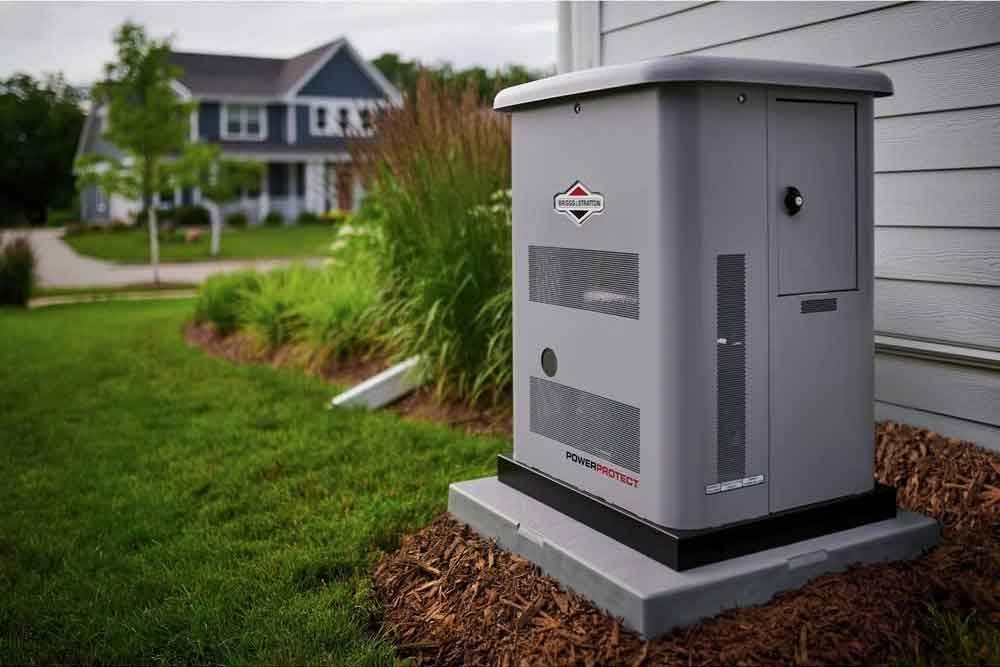
Installation and Maintenance Tips
- Professional Installation vs. DIY
While DIY might seem tempting, hiring a licensed electrician ensures your generator is installed safely and complies with local codes. - Regular Maintenance Schedule
Change the oil, check the filters, and schedule annual inspections to keep your generator in top shape. - Troubleshooting Common Issues
Know how to address minor issues like low fuel levels or warning lights to avoid unnecessary service calls.
Installation Considerations: DIY vs. Professional Help
When it comes to installing a home standby generator, one of the most crucial decisions you’ll face is whether to take on the project yourself or enlist the help of a professional. Each option has its own set of advantages and considerations that can significantly impact the performance, safety, and longevity of your generator.
- DIY Installation: For those who are handy and comfortable working with electrical systems, a DIY installation can be an appealing choice. It not only reduces labor costs but also allows you to have full control over the installation process. Many manufacturers provide comprehensive installation manuals and video guides, making it easier than ever for the average homeowner to set up their generator. However, keep in mind that installing a generator involves working with high-voltage electricity and natural gas or propane systems. If you’re unsure about any aspect of the installation, the risks may outweigh the savings.
- Professional Help: Opting for professional installation might come with a higher upfront cost, but it offers peace of mind that your generator will be installed correctly and safely. Certified electricians have the training and experience to navigate local codes, handle complex wiring, and ensure that your generator operates efficiently. Moreover, many professionals can offer valuable insights on generator placement, ensuring optimal performance while minimizing noise and visual impact on your property. Additionally, a professional installation often includes a warranty, providing you with further protection against potential issues down the line.
Ultimately, the decision between DIY and professional installation should be based on your comfort level with electrical work, your knowledge of local building codes, and your overall budget. Whichever path you choose, taking the time to carefully consider your options will help ensure that your standby generator is ready to keep your home powered during outages, providing you with the reliability and security you need.
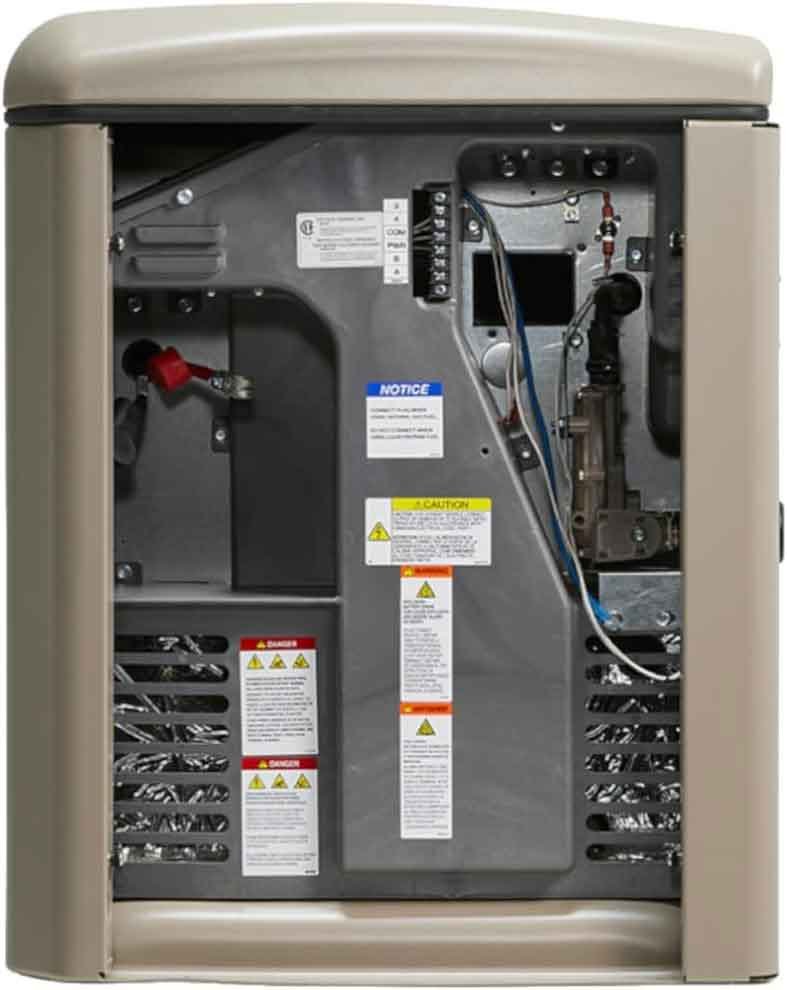 Maintenance Tips for Longevity and Reliability
Maintenance Tips for Longevity and Reliability
Investing in a home standby generator is a significant step toward ensuring your household’s safety and comfort during power outages. However, to maximize its lifespan and reliability, regular maintenance is paramount. Here are some essential maintenance tips that will keep your generator running smoothly for years to come.
- Regular Inspections
Start with routine visual inspections of your generator. Look for any signs of wear and tear, such as rust, leaks, or loose connections. It’s also a good practice to check the air intake and exhaust vents to ensure they are free from debris and obstruction. A clean generator is a happy generator! - Change the Oil and Filters
Just like your vehicle, your generator needs fresh oil to run efficiently. Follow the manufacturer’s recommendations for oil change intervals, typically every 50 to 100 hours of operation or annually, whichever comes first. Replacing the oil and air filters will not only improve performance but also prolong the engine’s life. - Exercise Your Generator
Generators need to be exercised regularly to ensure they start up when you need them. Run your generator at least once a month for about 20-30 minutes under a load. This practice helps keep the battery charged, lubricates the engine, and ensures that all parts are functioning correctly. - Keep the Battery Maintained
Most standby generators have a battery that powers the start-up. Check the battery’s charge regularly and clean any corrosion from the terminals. If your generator is equipped with a battery maintainer, utilize it to keep your battery in optimal condition. - Fuel Stability
If your generator runs on gasoline, consider using a fuel stabilizer to prevent the fuel from degrading over time. This is particularly important if you don’t use your generator frequently. Empty the fuel tank if you expect long periods of inactivity to avoid issues with stale fuel, which can clog the system and lead to operational failures. - Professional Servicing
While there’s a lot you can do yourself, enlisting a professional for annual servicing is a wise investment. They can conduct a thorough inspection, perform necessary repairs, and ensure that your generator meets safety standards.
By incorporating these maintenance tips into your routine, you’ll not only enhance the longevity and reliability of your home standby generator but also gain peace of mind knowing that you are prepared for any power interruption. A well-maintained generator is your steadfast ally in ensuring that your home remains powered during life’s unexpected outages.

Cost Considerations
When considering the purchase of a home standby generator, a thorough cost analysis is essential to understanding its long-term value. While the initial investment may seem daunting—ranging from a few thousand dollars for smaller models to upwards of ten thousand for higher-capacity options—it’s crucial to look beyond the sticker price and assess the potential savings and peace of mind a generator can offer.
First, factor in the costs associated with power outages. These can include lost food in your refrigerator or freezer, the expense of hotel stays during prolonged outages, and the inconvenience of being without power for days or weeks. In areas prone to severe weather, these costs can add up quickly. A standby generator acts as an insurance policy against these unpredictable events, providing a reliable power source when the grid fails.
Next, consider the efficiency of modern generators. Many units are designed to run on both natural gas and propane, allowing for flexible fuel options that can lead to cost savings over time. Additionally, newer models boast improved energy efficiency, reducing fuel consumption and lowering ongoing operational costs.
Additionally, take into account the maintenance costs associated with a standby generator. While regular servicing is necessary to keep your unit in optimal condition, the investment in maintenance is minimal compared to the potential losses incurred from an extended power outage. Many manufacturers also offer warranties that cover repairs and parts, further mitigating long-term expenses.
Finally, it’s important to think about the resale value of your home. A well-installed, high-quality standby generator can enhance your property’s appeal and market value, making it a worthy investment for the future.
In summary, while the initial cost of a home standby generator may require a significant outlay, the long-term savings, convenience, and security it provides can far outweigh that initial investment. By conducting a thorough cost analysis, you can make an informed decision that aligns with your needs and budget, ultimately powering up your home to withstand the unexpected.
- Initial Purchase Price
Expect to spend $3,000 to $10,000 on a high-quality standby generator, depending on its size and features. - Installation Costs
Professional installation can add another $2,000 to $5,000 to your budget. - Ongoing Maintenance Expenses
Budget for regular maintenance, which typically costs around $150 to $300 per year.

Conclusion: Best Home Standby Generator
A home standby generator isn’t just a luxury—it’s peace of mind. With the right generator, you’ll never have to worry about power outages disrupting your life. From choosing the best brand to maintaining it for the long haul, you’re now equipped to make an informed decision.
As we reach the conclusion of our guide to choosing the best home standby generator, it’s time to reflect on the critical aspects that will inform your final decision. Investing in a standby generator is not just about purchasing a product; it’s about securing peace of mind for you and your family during unforeseen power outages.
When weighing your options, revisit the key factors we’ve discussed: your power needs, the size and type of generator that best suits your home, fuel source preferences, and budget constraints. Take the time to evaluate the specific features that resonate with your lifestyle—whether it’s an automatic transfer switch for seamless power transitions or advanced technology for remote monitoring.
Moreover, consider the long-term implications of your choice. A generator is a significant investment, and selecting one that offers reliability, efficiency, and robust customer support can save you headaches and additional costs down the line.
Don’t forget to check reviews and testimonials from other users to glean insights into real-world performance and durability. This can often provide clarity that specifications alone cannot. Finally, trust your instincts and choose a generator that aligns with your values and needs.
With careful consideration and a clear understanding of your requirements, you’re now equipped to make an informed decision that ensures your home remains a sanctuary of comfort and safety, no matter what disruptions may arise. Power up your peace of mind and take the necessary steps toward uninterrupted living. Your ideal standby generator awaits!

Frequently Asked Questions (FAQs) About Home Standby Generators
- How Long Can a Standby Generator Run Continuously?
Most models can run for up to 200-500 hours, depending on the fuel supply and maintenance. - Are Standby Generators Noisy?
Modern standby generators are quieter than older models, with noise levels ranging from 60 to 70 decibels. - What Happens If I Don’t Use the Generator Regularly?
Even if you don’t use it often, run the generator periodically to keep its components lubricated and operational.
You Might Also Like
- BLUETTI Elite 200 V2 Review
- BLUETTI AC50B Power Station Review
- Honda EU2200ITAN 2200 Watt Review
- Champion Generator for Home
- Dual Fuel Inverter Generator




